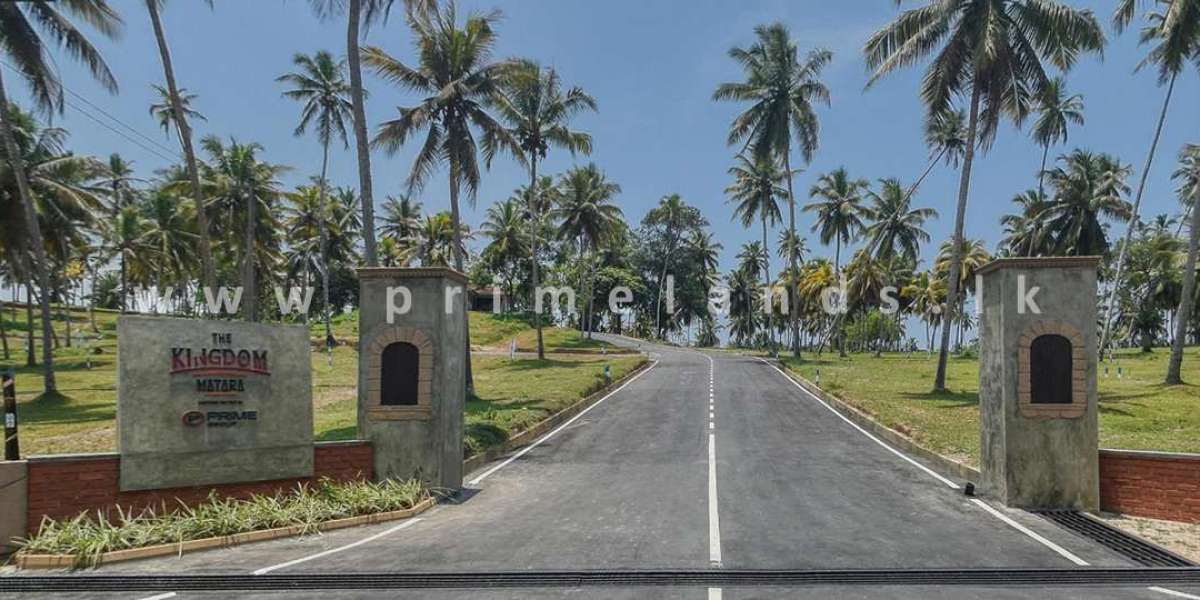Inheriting property in Sri Lanka can feel like receiving an unexpected gift, but for many heirs, the reality of managing inherited land often proves more complex than anticipated. Whether you have inherited a sprawling family estate, a modest plot of land for sale potential in Colombo's suburbs, or ancestral grounds in the countryside, the process of selling inherited property requires careful navigation through legal requirements, emotional considerations, and market dynamics unique to Sri Lankan real estate.
The island nation's property inheritance system reflects its rich cultural heritage and colonial legal legacy, creating a framework that can seem daunting to those unfamiliar with its intricacies. Understanding this process becomes particularly crucial when multiple heirs are involved, when properties have been passed down through generations without proper documentation, or when the inherited land holds significant emotional value for family members who may have conflicting views about its future.
Understanding Your Legal Standing as an Heir
Before considering any sale, establishing your legal right to the inherited property forms the foundation of the entire process. In Sri Lanka, property inheritance follows either the General Law (Roman-Dutch Law) or personal laws depending on your religious and ethnic background. Most Sinhalese and Tamil Buddhists, Hindus, and Christians follow the General Law, while Muslims typically follow Muslim Personal Law, and Kandyan Sinhalese may be subject to Kandyan Law in certain circumstances.
The first critical step involves obtaining a clear title to the property. This process begins with securing certified copies of the deceased's death certificate and will, if one exists. When a valid will exists, the executor named in the document must apply for probate from the District Court having jurisdiction over the area where the deceased resided. This legal process validates the will and grants the executor authority to distribute assets according to the deceased's wishes.
In cases where no will exists, the property passes according to intestate succession laws. Here, the legal heirs must obtain Letters of Administration from the appropriate District Court. This document serves as legal proof of your right to deal with the deceased's assets. The process typically requires gathering birth certificates, marriage certificates, and death certificates of all relevant family members to establish the chain of inheritance.
The complexity increases significantly when dealing with properties that have been inherited through multiple generations without proper documentation. Many families discover that their ancestral lands lack clear titles due to informal transfers or missing paperwork from decades past. Resolving these title issues often requires extensive genealogical research, witness statements from elderly community members, and sometimes litigation to establish clear ownership.
Valuing Your Inherited Property
Accurate property valuation serves multiple purposes in the selling process, from setting realistic market expectations to fulfilling tax obligations. Sri Lankan property values vary dramatically based on location, with urban areas like Colombo, Kandy, and Galle commanding premium prices compared to rural regions. The type of property also significantly influences value, whether you are dealing with residential land, Commercial Property for Sale opportunities, agricultural parcels, or specialised properties like water front lands that offer unique development potential.
Professional property valuers registered with the Institute of Valuers of Sri Lanka provide comprehensive assessment services that consider multiple factors including location desirability, infrastructure development, zoning regulations, and market trends. These experts examine comparable sales in the area, assess the land's development potential, and factor in any improvements or structures on the property.
The valuation process becomes particularly important for agriculture land for sale scenarios, where factors like soil quality, water availability, crop cultivation history, and proximity to markets significantly impact value. Agricultural properties may also have restrictions on conversion to other uses, which affects their market appeal and pricing structure.
Government valuations, while often conservative compared to market rates, play a crucial role in tax calculations and stamp duty assessments. The Department of Government Valuer provides official valuations that, while legally binding for tax purposes, may not reflect current market conditions in rapidly appreciating areas.
Navigating Tax Implications and Legal Requirements
Selling inherited property in Sri Lanka involves several tax considerations that can significantly impact your net proceeds. The primary tax concern is Capital Gains Tax, which applies to profits made from property sales. However, inherited properties receive favourable treatment under Sri Lankan tax law, with the cost basis typically stepped up to the property's value at the time of inheritance rather than the original purchase price paid by the deceased.
Estate Duty, while abolished for deaths occurring after April 1, 2003, may still apply to properties inherited from individuals who died before this date. Understanding these historical tax obligations requires careful examination of the inheritance timeline and consultation with tax professionals familiar with estate law.
Stamp duty applies to the property transfer documents, calculated as a percentage of the property's assessed value. This duty varies depending on the property's location and value, with different rates applying to urban and rural properties. Additionally, if the property generates rental income between inheritance and sale, this income remains subject to regular income tax obligations.
Registration fees, legal fees, and survey costs also contribute to the overall transaction expenses. These costs typically range from two to five percent of the property's value, depending on its complexity and location. Engaging qualified legal counsel familiar with property law ensures compliance with all requirements while minimising potential complications.
Preparing the Property for Sale
Successfully marketing inherited property often requires significant preparation, particularly when the property has been vacant or minimally maintained. This preparation phase involves both legal documentation and physical improvements that enhance the property's market appeal.
Documentation preparation includes assembling all relevant papers such as the original deed, survey plans, tax payment receipts, and any development permits or approvals. Missing documents must be reconstructed through applications to the relevant government departments, which can be time-consuming but essential for a smooth transaction.
Physical preparation varies depending on the property type and condition. Residential properties may benefit from basic maintenance, cleaning, and minor improvements that showcase their potential. Commercial properties might require professional assessment of their business viability and compliance with current regulations. Agricultural lands often need boundary surveys, soil testing, and documentation of water rights or irrigation systems.
For waterfront properties, environmental clearances and coastal zone regulations compliance become additional considerations. These specialised properties often attract premium buyers but require careful navigation of environmental protection laws and development restrictions.
Marketing Strategies and Finding the Right Buyer
Effective marketing of inherited property in Sri Lanka requires understanding the diverse buyer segments and their specific needs. Local buyers often prioritise different features than expatriate Sri Lankans or foreign investors, necessitating targeted marketing approaches
Traditional marketing channels include newspaper advertisements in both English and local languages, particularly in weekend property supplements of major publications. Real estate agencies with local market expertise provide valuable services, from professional photography to buyer screening and negotiation support.
Digital marketing has gained significant importance, with property portals and social media platforms reaching broader audiences. High-quality photographs showcasing the property's best features, detailed descriptions highlighting unique selling points, and virtual tours for distant buyers enhance marketing effectiveness.
Networking within local communities often proves particularly effective for inherited properties, as neighbours and community members may have long-standing interest in acquiring adjacent or nearby lands. Word-of-mouth marketing through family connections, professional networks, and community organisations can generate qualified leads.
Selling Inherited Land
Selling inherited land in Sri Lanka represents both an opportunity and a responsibility that extends beyond simple financial transactions. The process demands patience, thorough preparation, and professional guidance to navigate successfully. While the legal and administrative requirements may seem overwhelming initially, systematic approach and proper planning can transform this challenge into a rewarding experience.
The key to success lies in understanding that each inherited property carries its own unique history, legal complexities, and market position. Whether dealing with urban residential plots, rural agricultural lands, commercial properties, or waterfront parcels, the fundamental principles of clear title establishment, accurate valuation, legal compliance, and strategic marketing remain constant.
Remember that professional assistance from qualified lawyers, surveyors, valuers, and real estate agents represents an investment rather than an expense. Their expertise not only ensures legal compliance but often results in better sale prices and smoother transactions that justify their fees many times over.
Most importantly, approach the sale process with realistic timelines and expectations. Sri Lankan property transactions often take longer than anticipated due to documentation requirements, buyer financing processes, and regulatory approvals. However, with proper preparation and professional guidance, selling your inherited property can provide both financial benefits and the satisfaction of responsibly managing your family's legacy.








